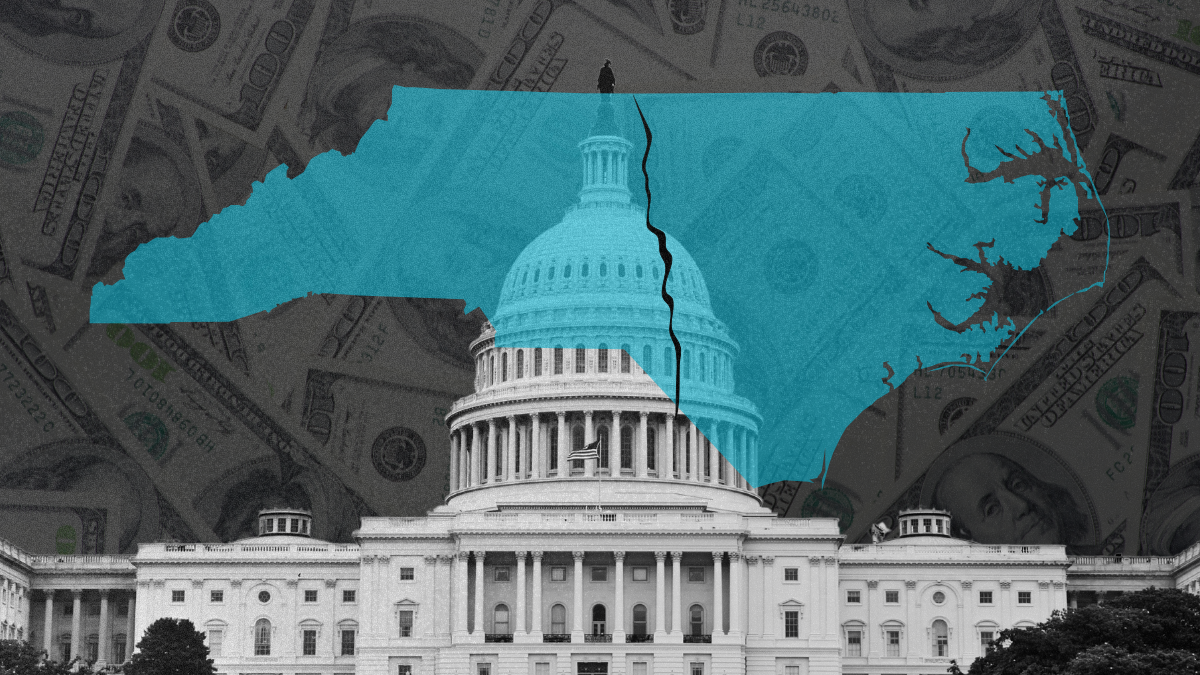As federal lawmakers debate funding cuts and state Republicans follow suit, critics of the cuts worry it could leave the state without funding for critical services.
Since the beginning of President Donald Trump’s first term, we’ve seen cuts to programs and agencies that are critical to Americans executed by Federal officials nominated by Trump alongside billionaire Elon Musk’s Department of Government Efficiency. We’ve seen these cuts in funding and staff impact areas such as research, veteran care, agriculture, and disaster recovery.
In addition to the reduction in staff members and spending across government agencies, Trump and Republicans in Congress are looking to cut even more federal funds through the budget reconciliation bill that recently passed the U.S. House and has moved to the Senate. Although Republicans boast about how the bill will cut back on “unnecessary” spending, the Congressional Budget Office (CBO) estimates that the bill will increase our deficit by $2.4 trillion over the next decade. The budget bill calls for:
- Nearly $700 billion cut from Medicaid over a decade
- Stricter work requirements for the Supplemental Nutrition Assistance Program (SNAP )
- Funding cuts to Meals on Wheels, and food assistance programs for veterans
- The removal of Biden-era regulations that made it easier for borrowers to get loans canceled if their colleges abruptly closed or defrauded students
And much more.
During a visit to Barwell Road Elementary School, U.S. Representative Deborah Ross spoke about the cuts to SNAP and the impact it could have on students. Ross said that the budget bill doesn’t just cut from SNAP but also cuts a program that allows schools in low-income areas to serve free school meals to the student body without having to determine the eligibility of each individual student.
Barwell Road Elementary School in Raleigh, with a student population of 700, is one of the schools that uses this program. The school’s principal, Tekeisha Mitchell, attributes the rise in test scores among the students to the program.
“Not having these programs would mean that some of our students would not get breakfast, they would not get lunch,” Mitchell said. “And it’s extremely hard to educate a child who’s sleeping or a child who’s hungry.”
Democrats in the state House attempted to add a similar provision to the state’s budget- one that would require the state to provide free school lunches and forgive the $3 million in school lunch debt in the state by reducing the amount the state is spending on school vouchers. However, Republicans rejected the notion.
The reduction of federal support would poke holes in the state budget, as North Carolina relies on federal funds to contribute to the budget, which analysts have already predicted could end up in the red. For this fiscal year alone, federal support for the state is estimated to be $30.4 billion, with state agencies like the Department of Education, Transportation, and Health and Human Services being some of the top recipients. Without federal funds, state lawmakers will have multi-million-dollar gaps throughout their budget. It’s estimated that:
- The state Department of Health Human Services is estimated to receive $23.9 billion in federal funds for the 2025-2026 fiscal year, compared to $8 million of state spending.
- Education in the state saw $3.1 billion invested from the federal government in 2023-2024, whereas the state spent $10.8 billion.
According to the Center on Budget and Policy Priorities, “With additional tax cuts scheduled and potential federal funding reductions looming, the state faces growing uncertainty about how to sustain essential services such as education, health care, and infrastructure.”
Ross criticised the bill for taking away services from some of the country’s most vulnerable populations. “What this reconciliation does like no other budget in the history of this country is give more tax breaks to the most affluent at the expense of the poorest Americans,” Ross said. “That increases the deficit, and it is cruel and wrong.”
Despite the chaos caused by the sweeping cuts to government funding and staff capacity, and the consequential blowback Republicans have been receiving due to them, Republican lawmakers here in the state are following suit and pursuing avenues to cut spending and staffing positions in state government agencies. However, with the state steadily shifting towards using federal funds for education and health services and federal cuts ongoing, Senator Natalie Murdock says it will be difficult to estimate how much the state should spend and where.
“Until we have a better feel for federal funding,” she said, “I don’t see how we are really going to truly know what our funding looks like here in North Carolina.”
Congress’ budget bill now sits in the Senate, where even Republicans have given pause regarding the large amount of funding cuts included in the bill, specifically when it comes to Medicaid. Constituents in the state have organized rallies and town halls to speak with their senators, asking them to oppose the bill. From farmers to nurses to advocates, the people of North Carolina are calling on representatives to save these crucial services.





